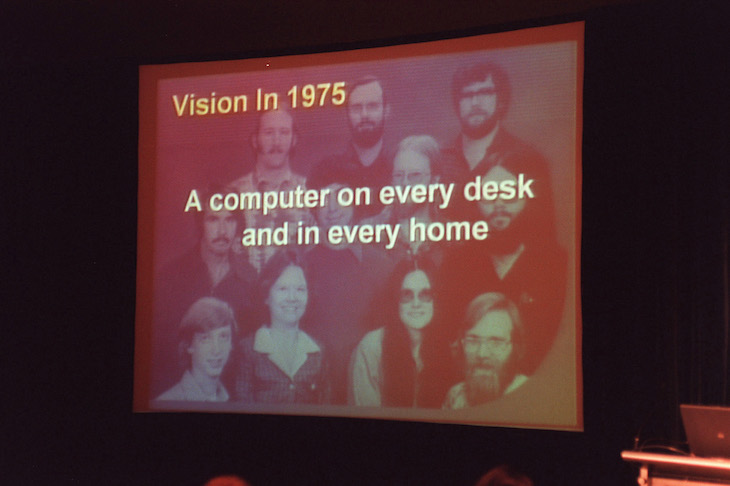At the risk of sounding like Jean Baudrillard, I would like to suggest that the internet revolution has not yet taken place.
So far, lots of very clever people have performed amazing feats of technical ingenuity. But for the most part our collective behaviour has so far failed to change enough to truly benefit us. Rather than making us freer, more relaxed and more efficient, in general everyone seems busier, more distracted and more tense.
Unfortunately, technology is a bit like Hitler: it doesn’t know when to stop. No sooner has it annexed the Sudetenland than it starts invading Czechoslovakia. The world might be happier if Silicon Valley were put on a two-day week, to give us — and our social norms — time to catch up. Unless behaviour soon changes more significantly, we will have squandered digital technology’s real potential to solve second-order problems: the housing shortage, say, or transport congestion, or the spiralling cost of education.
A lag between technological progress and behaviour change is only to be expected. Technological progress is at times very rapid and exponential, whereas changes in human behaviour follow a sigmoid curve: slow at first, then rapid, then hitting a plateau. I noticed this first-hand when the high-speed rail service opened in Kent ten years ago. Conventional wisdom would predict people would instantly switch to the new, faster line. It didn’t work like that. For the first few years, alighting at Ebbsfleet station felt like Bad Day at Black Rock. Then suddenly it tipped. In the past five years usage has grown by 200,000 passengers a year, and the trains are packed. In time, growth will level off. (Virtually nothing in the human realm is linear, which is why extrapolating trends is so dangerous.)
Most behaviours — and attitudes, too — follow this sigmoid path. The fall in drink-driving or smoking; the rise in divorce; attitudes to homosexuality; car use; mobile phone adoption; the craze for gin, the fashion for beards. I am certain vegetarianism will surge in popularity over the next 30 years: what is harder to predict is when the surge will happen and where it will peak. Humans are largely a social, mimetic species, and adopt behaviours more by diffusion than by individual calculation. Consider ‘gluten intolerance’ for proof of this.
But some step change is overdue in the patterns of working behaviour. In 1988 I had to go into the office to do almost anything. Now, other than talking to people face to face, there is nothing work-related which I cannot do at home. Yet people drudgingly travel into offices at the same time each day to do things that they could do anywhere — such as replying to emails or making phone calls.
In education, there is an interesting development called ‘flipping the classroom’. Traditionally teachers talked at pupils during the day, setting them exercises as homework. The new approach aims to reverse this. You watch YouTube lectures for your homework, and do exercises in class (where the teacher is on hand to help). Mostly it seems to work well, since it frees time up for people to interact when they are together.
I recently tried an experiment which I recommend highly: ‘flipping the office.’ Other than for half an hour in the middle of the day, I refuse to use any technology in the office at all. Sometimes this means I go home at 4 p.m. and do emails on the train. If I have no one to meet, I travel in late. Or I work from home for one day a week and pack all phone calls and emails into that day. Granted, not everyone can do this. But if only 10 per cent of people started the trend, peak-time overcrowding could largely go away.
Got something to add? Join the discussion and comment below.
Get 10 issues for just $10
Subscribe to The Spectator Australia today for the next 10 magazine issues, plus full online access, for just $10.
You might disagree with half of it, but you’ll enjoy reading all of it. Try your first month for free, then just $2 a week for the remainder of your first year.















Comments
Don't miss out
Join the conversation with other Spectator Australia readers. Subscribe to leave a comment.
SUBSCRIBEAlready a subscriber? Log in